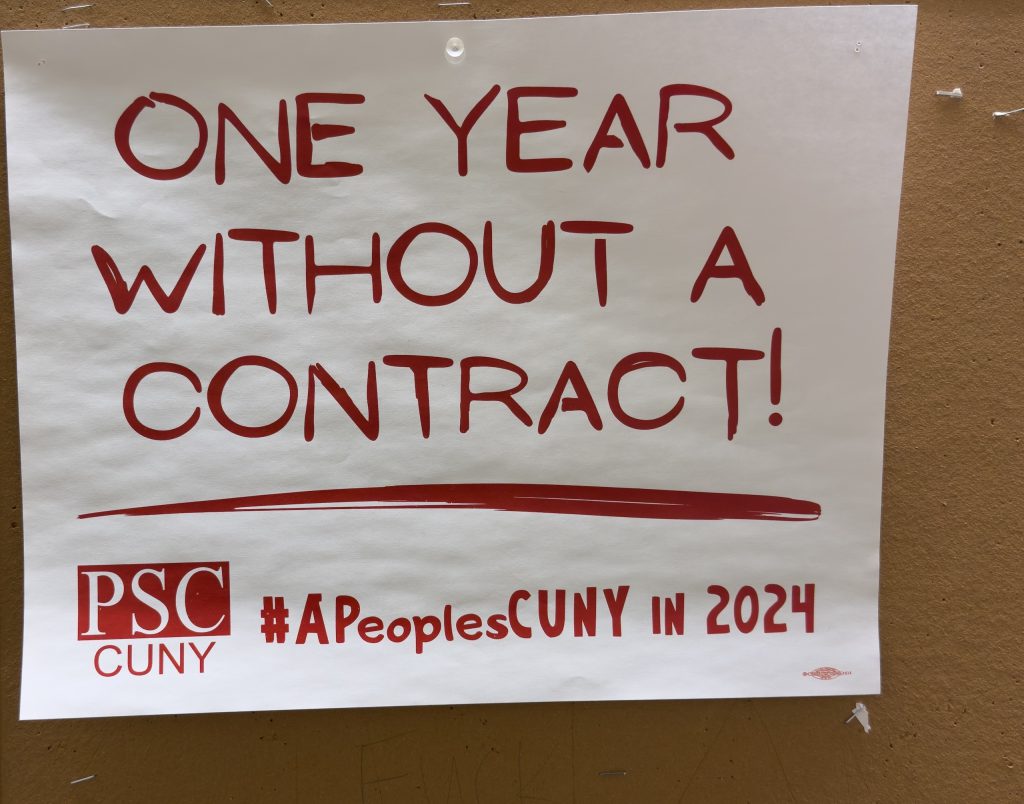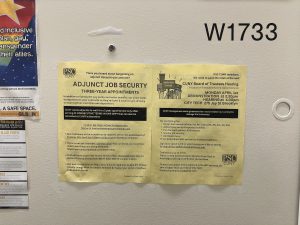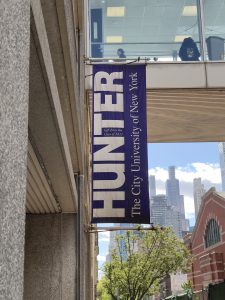
It is no secret that Mayor Eric Adams is on the hot seat. According to ABC7, 69% of the city’s residents want him gone. Part of the reason for such a high disapproval rating is how he has handled the city’s funding, especially for social programs such as education. Mayor Adams is well-documented for pursuing arduous budget cuts for NYC schools. The Mayor’s $23 million cut to CUNY in 2023 led to the layoff of 26 full-time faculty in Queens College and 75 part-time adjuncts, according to Spectrum News NY1. These cuts affect staff who rely on CUNY for healthcare and benefits. They also affect students’ educational path in an environment where they will likely have jobs and other extracurriculars.

For Hunter College, students are feeling the burden of an underfunded CUNY. Mate Novak, a third-semester Hunter student, said he “should be more informed.” Novak also expressed disappointment that this city couldn’t have a mayor that worked for the people. Another student, third-year Noah Böttcher, suggested that funding for CUNY should be increased, tuition decreased and MetroCards made free.
To others, Adams isn’t the direct problem. Hunter College Political Science professor Charles Tien said that CUNY and, by extension, Hunter’s funding problem comes more from Albany than the city. This doesn’t mean that Mayor Adams is doing enough, however. “I haven’t noticed significant levels of public support from the Mayor,” Tien explained. His view of the city’s role in Hunter funding also shows signs of strain. “it’s an environment of austerity…. far too many students are being taught by part-time faculty,” he continued. To Tien, higher education generally is not high up on people’s radars, so those in charge don’t think much of it, in this case, Adams is the public safety candidate, so there’s more focus on that sector.

Professor Erin Mayo Adams of the Political Science department also showed signs of feeling the strain, mostly about her endeavors with the LGBTQ Institute at Hunter College. Mayo-Adams has also mentioned the idea of austerity from the Adams administration. When asking for more funding, the LGBTQ Consortium was left stagnant. “it wasn’t the worst it could have been,” she described, but with LGBTQ polarization, it would be nice to have additional funding for community colleges. Mayo-Adams also brought up that Adams should put the money where his mouth is, in a sense. By touting that the City is essentially the Anti-DeSantis, there should be an incentive to fund institutions that drive that perception of New York.
Both Tien and Mayo-Adams mentioned that the City puts most of its efforts into community colleges. That doesn’t mean Hunter doesn’t benefit from that. “I would like to see the Adams Administration devote more resources to community colleges,” Mayo Adams said. Tien explains that he “thinks more support for the community colleges would be great.” This is solely because community colleges allow students a foot in the door at Hunter. Until recently, a high number of Hunter students are transfer students from Community Colleges. Currently, roughly 34.2% of the population are transfer students.
Although idealistic plans for funding community colleges and MetroCards seem far-reaching, the Professional Staff Congress has been fighting for a “New Deal for CUNY,” which advocates for exactly these described measures. “The New Deal for CUNY mandates that all tuition and fees for in-state undergraduate students…be eliminated and that the revenue to the colleges that would otherwise derive from tuition and fees be replaced annually by federal, state, and city funds,” wrote PSC. The idea is to socialize CUNY while fixing the biggest deficits in spending from both Albany and City Hall. These initiatives could potentially lead to a CUNY where Hunter College benefits. There could be a higher rate of individuals who come in and out of Hunter through community colleges like in the past, increasing the accessibility to a proper higher education that drives New York City.
As it seems, funding is far more complex than just the Adams Administration and its money allocated to CUNY and, ultimately, Hunter; rather, it is a layered and complex relationship between community college, senior college, and the government. Hunter College may not be feeling the highest effects of underfunding, but it is indirectly hindering this institution every day.
